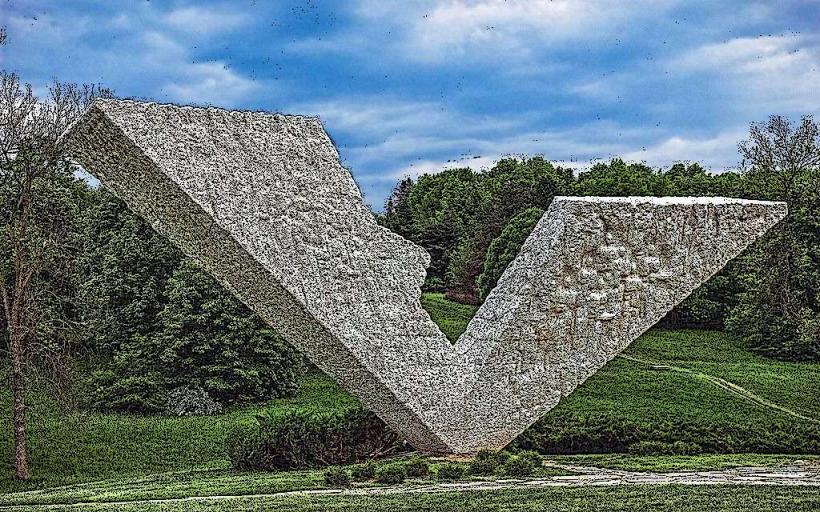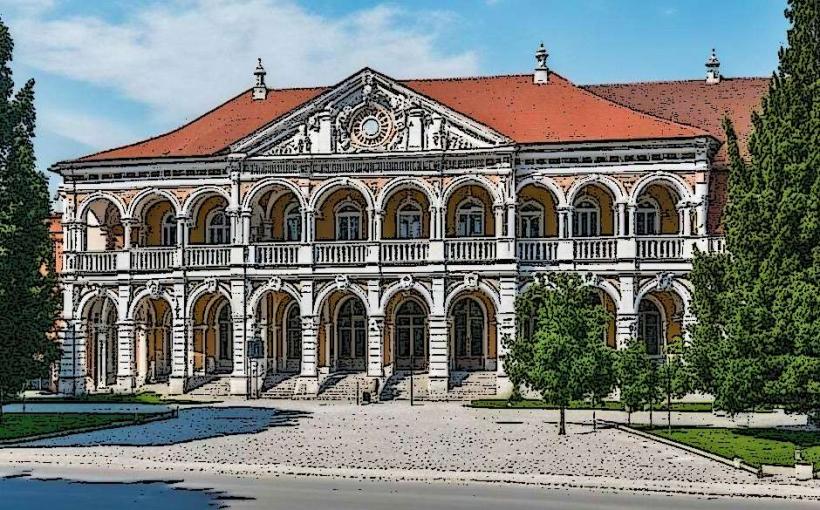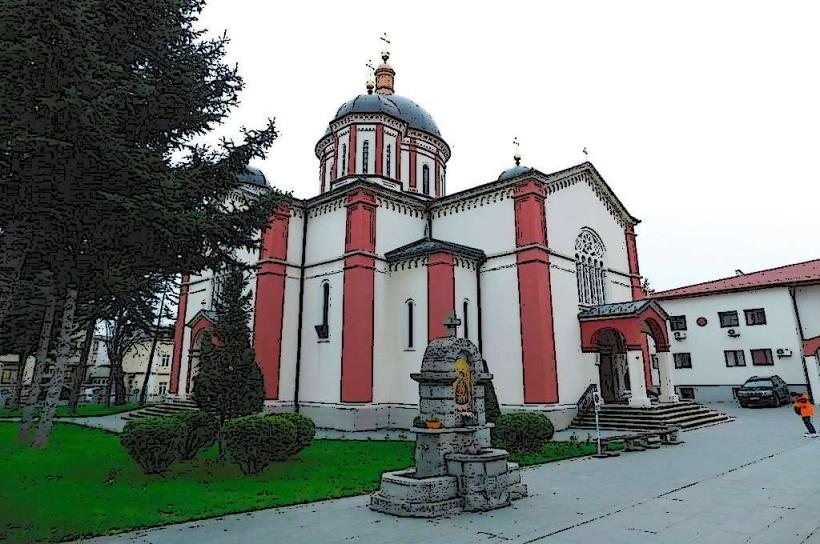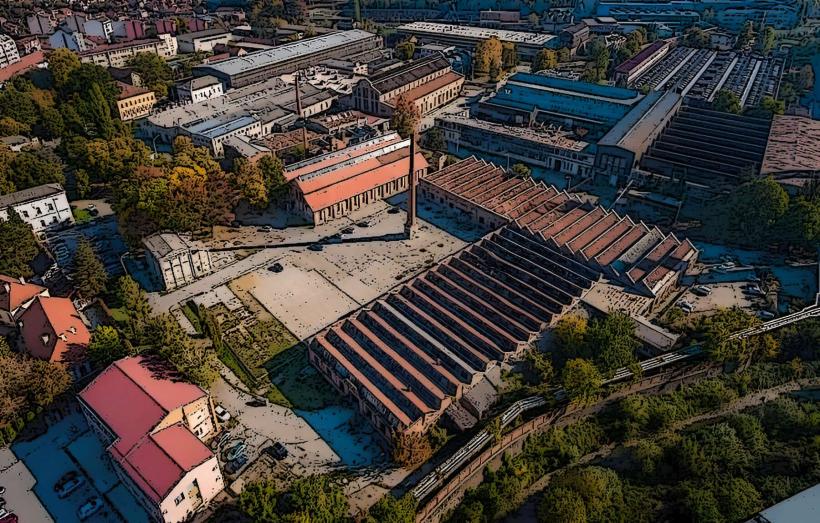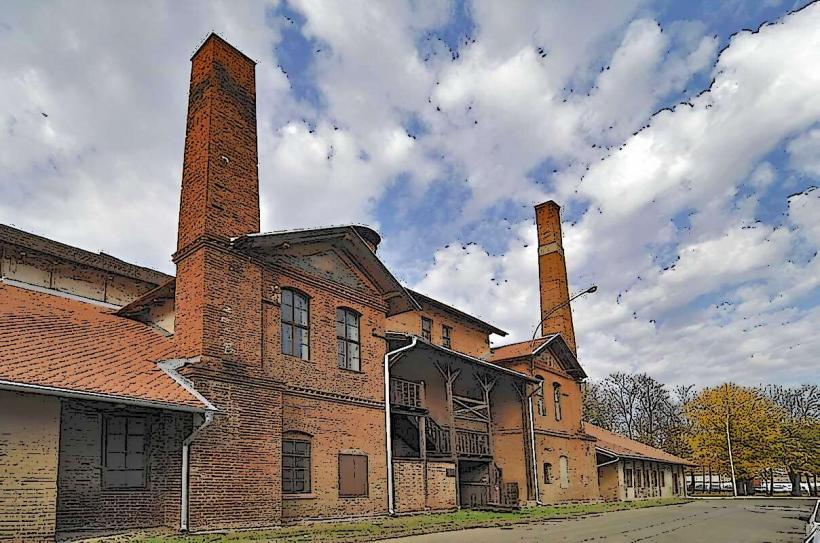Information
Landmark: Amidža KonakCity: Kragujevac
Country: Serbia
Continent: Europe
Amidža Konak, Kragujevac, Serbia, Europe
Amidža Konak is a historic building located in Kragujevac, Serbia. It is an important example of Serbian architecture from the 19th century, specifically related to the time when Kragujevac was the capital of the Principality of Serbia under Prince Miloš Obrenović. The term "Konak" refers to a traditional residence or mansion, often associated with Serbian nobility or prominent figures in the 19th century. Amidža Konak was originally the residence of a prominent Serbian family and now serves as a museum showcasing aspects of Serbian culture and history.
Historical Significance
Construction and Purpose:
- Amidža Konak was built in the early 19th century, and it served as the residence of Amidža (meaning uncle in Serbian) to a prominent family in Kragujevac. The building reflects the period's architectural trends, which combined Ottoman and Serbian traditional styles.
- During the period of construction, Kragujevac was a cultural and political center, serving as the capital of the Principality of Serbia. The building stands as a reflection of the city's growth during this period.
Architecture:
- The architecture of Amidža Konak is an example of Ottoman-inspired design mixed with Serbian traditional elements. The building features distinctive wooden carvings, large windows, and decorative details that were popular during the era when it was constructed.
- The interior of Amidža Konak showcases the design elements of the early 19th century, including furniture, decorations, and artifacts typical of the time. The mansion offers a glimpse into the lifestyle of the wealthy Serbian families who lived in Kragujevac during the Principality era.
Cultural Role:
- Amidža Konak was not just a residential house; it served as a hub for social and cultural activities, particularly for the local elite. During its time as a residence, it hosted gatherings, and it was associated with important figures in Kragujevac’s political and cultural scene.
The Museum Today
Museum of Serbian Culture:
- Today, Amidža Konak serves as a museum, preserving and presenting the cultural heritage of Kragujevac and Serbia. The museum exhibits items related to Serbian history, traditions, and lifestyle from the 19th century, providing a deeper understanding of the cultural and social dynamics of that time.
- The museum displays historical artifacts, including furniture, clothing, household items, and artwork, many of which reflect the domestic life of the time when Kragujevac was the capital of the Principality of Serbia.
Educational and Cultural Programs:
- The Amidža Konak Museum also plays an important role in educating the public about Serbia’s cultural history and the development of Kragujevac. It often hosts exhibitions, lectures, and other cultural events that highlight various aspects of Serbian art, history, and architecture.
- Through its exhibitions and programs, the museum provides an opportunity for visitors to explore the local heritage and learn about the historical context of Kragujevac’s role in Serbia’s political and cultural history.
Preservation of Architectural Heritage:
- In addition to its function as a museum, Amidža Konak is a key example of the architectural style from the early 19th century, and its preservation is important for understanding the development of Serbian domestic architecture during the Ottoman and early modern Serbian periods.
Conclusion
Amidža Konak is not only a notable example of Serbian architecture but also an important cultural and historical site in Kragujevac. Its transformation into a museum allows for the preservation of valuable Serbian heritage, offering visitors an opportunity to explore the city's past and the lifestyle of the time. The building serves as a reminder of Kragujevac’s historical significance as the capital of Serbia and its role in shaping the cultural and political landscape of the country in the 19th century.

